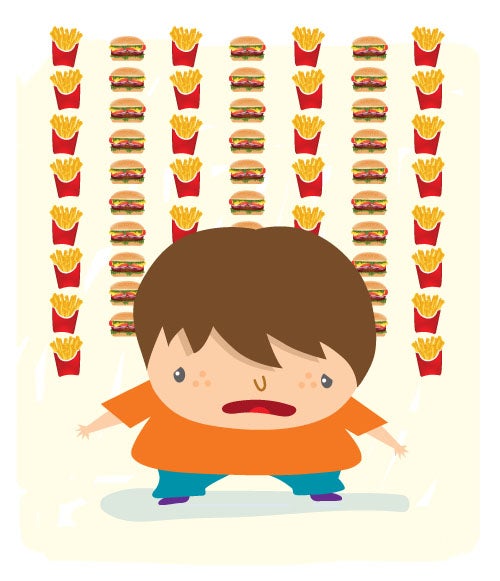by Ricardo Pérez-Cuevas.
The word “diet” usually brings to mind a chat among friends who are looking to lose a few extra pounds (or kilos). It’s hard to imagine that a conversation about diet would become a high priority policy discussion in Latin America. But believe it or not, it has—and it is an urgent one!
Why?
A number of studies have reported that overweight and obesity have increased rapidly in Latin America in recent years. And this has happened not only in adults, but in children as well. For example in Brazil, the proportion of overweight and obese children ages 10 to 12 skyrocketed from 23% to 39% in a period of just 4 years (2004-2008). In Mexico, 17.3% of children ages 5 – 11 are overweight; and in Argentina, the number of overweight children ages 10-11 is 27%.
Some of the factors that have been associated with the increase in overweight are characteristics of the so-called “obesigenic environments”. These environments are characterized by unhealthy lifestyles with little physical activity, long periods of exposure to television screens, videos and computer games, less than the recommended amount of sleep, limited access to healthy food, and increased availability of low-cost, high-calorie foods.
Overweight and obesity have almost immediate consequences on health, school performance and the social environment. Overweight children are more likely to become obese adults and are at increased risk for developing numerous health conditions, such as cardiovascular disease and other chronic diseases. Studies show that overweight and obese children seek medical care three times more often than normal-weight children. In other words, medical costs rise as body weight increases. In addition, the stigma of being overweight or obese can has psychosocial consequences, which can lower self-esteem and lead children to become victims of bullying. These conditions are also associated with social isolation and poor school performance.
Prevention is the key. Studies have reported on the successes of interventions that work with communities to promote behavioral changes at the family level. Some of the changes that have been reported are improvement in eating habits, hours of sleep, and exercise, as well as reductions in screen time.
Child overweight and obesity must be incluced in the public health agenda of Latin America and the Caribbean. Strategic interventions need to be put into place to bring about benefits both now and in the future, and to reduce the risk of chronic diseases when today’s children become tomorrow’s adults.
Ricardo Pérez-Cuevas is a senior health and social protection specialist in the IDB’s Country Office in Mexico. His work involves research and the design and evaluation of health policies and programs aimed at improving healthcare for non-infectious disease management as well as overweight and obesity prevention.


Leave a Reply